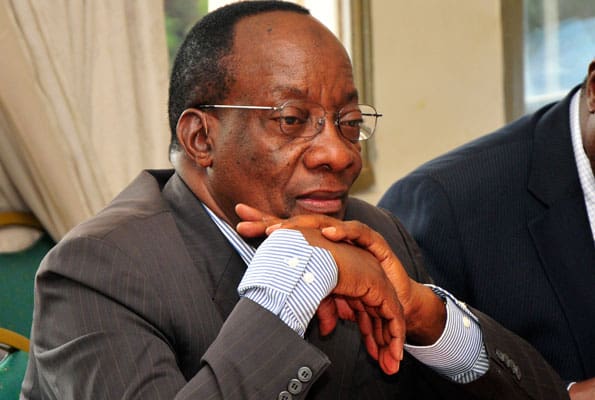In a recent interview with our reporter former Chairman of the Electoral Commission (EC), Dr. Badru Kiggundu, shared his views on the challenges hindering the commission from achieving complete independence.
Dr. Kiggundu’s insights shed light on the complexities involved and the need for ongoing efforts to ensure a truly independent electoral body.
Dr. Kiggundu emphasized that while significant progress has been made in strengthening the EC’s autonomy, achieving complete independence remains a challenging task. He identified several key factors that contribute to this ongoing struggle.
According to Dr. Kiggundu, the lack of a comprehensive legal framework that clearly defines the EC’s independence is a major obstacle. While existing laws acknowledge the commission’s independence in theory, there is still room for improvement to ensure its practical implementation.
He stressed the importance of enacting legislation that guarantees the EC’s autonomy and shields it from undue influence.
The appointment process of EC officials also poses a challenge to its independence. Dr. Kiggundu highlighted the need for a transparent and merit-based selection process that minimizes political interference.
Currently, the appointment of EC members is a subject of political negotiation, which can compromise the commission’s impartiality.
Insufficient funding remains a significant hurdle in attaining full independence. Dr. Kiggundu stressed the importance of providing the EC with adequate financial resources to carry out its mandate effectively.
Insufficient funding not only hampers the commission’s operations but also exposes it to potential external influences seeking to manipulate the electoral process.
Dr. Kiggundu acknowledged the significance of public perception in ensuring the EC’s independence. The commission must work towards building public trust and confidence through transparent processes, effective communication, and accountability mechanisms.
Addressing any perceived biases or weaknesses in the system is crucial for fostering public faith in the EC’s ability to conduct free and fair elections.
Dr. Kiggundu’s insights highlight the challenges faced by the Electoral Commission in achieving complete independence. While progress has been made, there is still work to be done to strengthen the legal framework, enhance the appointment process, secure adequate funding, and improve public perception.
Addressing these challenges will contribute to the establishment of a truly independent Electoral Commission, ensuring the integrity and fairness of future elections in the country











